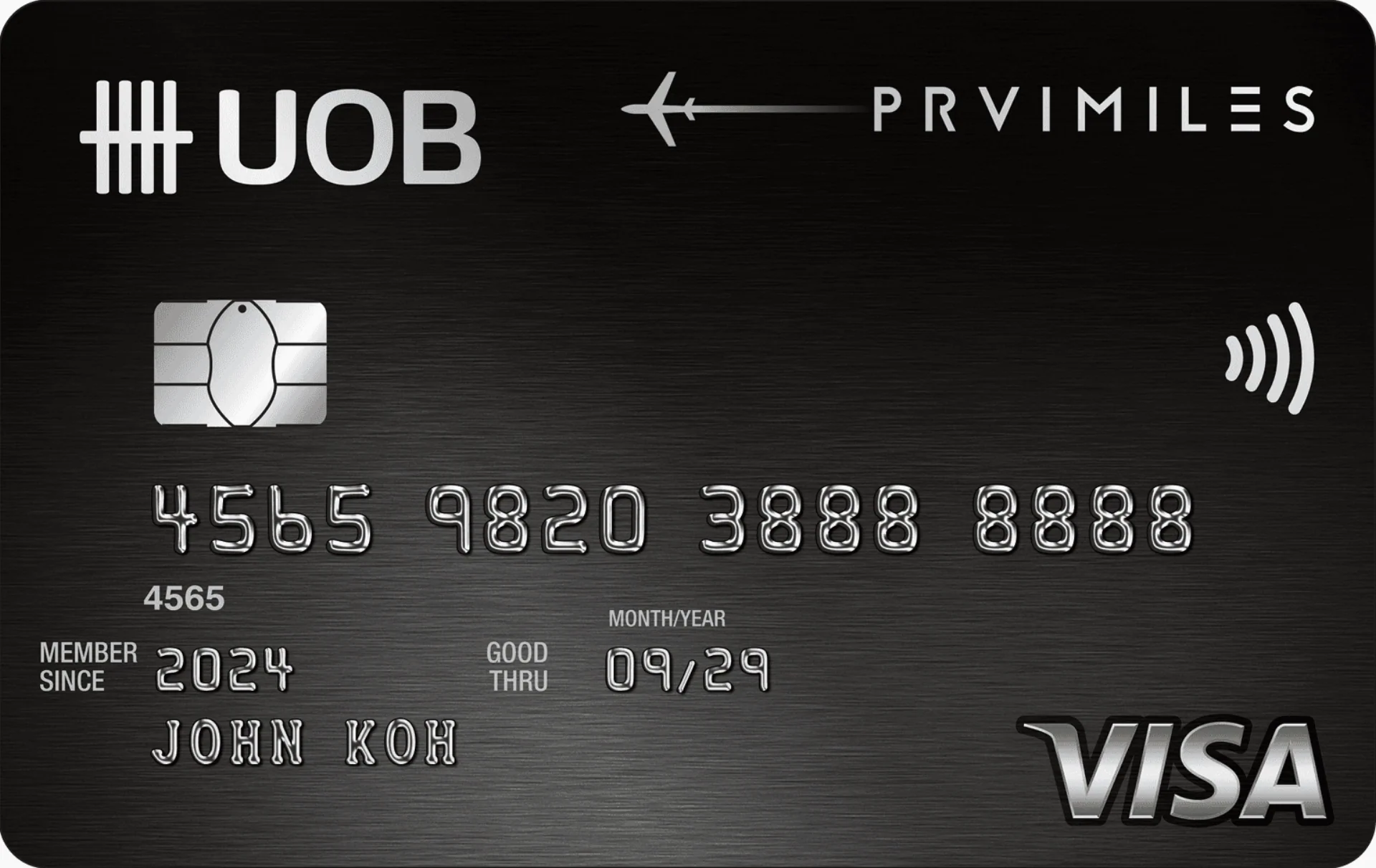How Does Annual or Multi-trip Travel Insurance Work?
Updated: 29 Jul 2025
Written bySingSaver Team
Team
The information on this page is for educational and informational purposes only and should not be considered financial or investment advice. While we review and compare financial products to help you find the best options, we do not provide personalised recommendations or investment advisory services. Always do your own research or consult a licensed financial professional before making any financial decisions.
If your year is packed with multiple trips, travel insurance can be a smart way to safeguard against unforeseen circumstances like injury or illness. For frequent flyers, especially those who travel for business or go on regular family holidays, the hassle of buying insurance for each individual trip can be cumbersome. This leads us to consider annual travel insurance: what it is, when it's beneficial, and whether it's a worthwhile investment for your travel lifestyle.
Travel insurance gives you peace of mind
Check out our latest travel insurance deals to make sure you get the best value for your money while getting the coverage you need.
What is covered by annual travel insurance?
Think of travel insurance as your personal safety net when you are away from home, stepping in to provide protection on your international trips. You will find various types and levels of coverage including policies that cover trip cancellations and interruptions, lost luggage, emergency evacuations and more.
Most travel insurance providers offer different tiers of coverage within these categories, and often allow you to customise a policy to your unique requirements instead of simply accepting the basic package. This allows you to tailor coverage towards the activities you have planned for each trip, such as cruises and high-risk sports. Keep in mind that some policies may cap the number of days per trip.
>> MORE: What is travel insurance?
Understanding the difference between single-trip insurance and multi-trip insurance
Wondering how multi-trip insurance differs from single-trip insurance? Let’s take a look at the key points:
|
Single-trip insurance |
Multi-trip or annual insurance |
|
|
Number of trips covered |
1 (one-off holiday) |
Multiple (trips throughout the year, whether for work or leisure) |
|
Duration limit |
Coverage ranges from 1 to 180 days, depending on provider |
Limited to duration stated on policy, usually 90 days |
|
Trip cancellation |
Covered |
Covered |
|
Trip interruption |
Covered |
Covered |
|
Lost luggage |
Covered |
Covered |
|
Refunds |
Unavailable once date of travel has commenced |
Possible for unexpired period of travel, provided that certain conditions are met |
How annual travel insurance works
Unlike single- and multi-trip insurance, annual travel insurance plans are usually activated from the date of purchase for 12 months. While each individual trip you make during this period is covered, there is typically a cap on the maximum duration allowed per trip.
With an annual plan, your coverage resets for each trip. For example, you get baggage delay coverage for each trip, not just once annually. Take some time to shop around for the most suitable policy – some insurance providers may allow automatic renewals or provide you with a discount for renewal.
Popular annual travel insurance plans in Singapore
You may be surprised to learn that an annual or multi-trip travel insurance plan can be quite affordable. Naturally, obtaining quotes is a vital first step before making any purchase, so some upfront research is recommended. To illustrate the potential costs, let’s take a look at the offerings from three popular insurance providers in Singapore.
1. Income Travel Insurance
- Exclusive perks for Income policyholders
- Post-departure purchase allowed (only insurer)
- Family can visit you if hospitalized overseas
Seedly rating: 4.5/5
Choose from three tiers to suit your coverage needs: Basic, Superior and Prestige. All three tiers cover the essentials including medical expenses, trip cancellation and travel delays, only differing in the maximum payout that will be disbursed. Add-ons such as COVID-19 protection are available.
2. MSIG TravelEasy® Annual
Seedly rating: 4.1/5
With 24/7 emergency medical assistance available worldwide, MSIG TravelEasy provides an attractive annual plan for frequent travellers. If you have pre-existing medical conditions, you can opt for the Pre-Ex plan for additional peace of mind.
3. SingLife Travel Insurance
- Covers trip booked using miles, hotel & credit card points
- Covers 50% trip cancellation & curtailment for any reason
- +15% off for MINDEF/MHA/POGIS insured members
Seedly rating: 4.3/5
SingLife offers both regional and worldwide coverage tiers to suit the needs of all travellers. Family plans are also available. Making an online claim is easy – simply make sure that you have all the required documentation ready. Within 3 days of your claim submission, you can expect to receive an acknowledgement email and funds will be paid directly to the account linked to your PayNow number.
Is annual travel insurance really worth the money?
Considering getting an annual insurance plan? Here are some questions to ask yourself before taking the next step:
How often are you travelling?
Start by considering your travel frequency. Are you a regular traveler who’s often on the go? Do you spend significant time abroad? If your travel is infrequent – perhaps one or two trips a year, each lasting a week or two – the benefits of annual travel insurance may not outweigh the cost.
Do your trips usually involve risky activities?
Evaluate the cost and potential complications of your trips. Are they expensive? Is there a higher risk of illness or accidents (for instance, if you intend to take part in a high-risk activity such as snowboarding or scuba diving)? Is there a chance of cancellation?
Keep in mind that annual policies have inherent limitations on the duration of each covered trip. For more intricate or higher-risk travel plans, a single-trip policy often provides more comprehensive protection, including options such as Cancel For Any Reason (CFAR) and trip delay coverage that annual policies may lack or limit.
Are you affected by pre-existing medical conditions?
When considering annual travel insurance, it's important to understand how pre-existing conditions are handled. These are health issues you had before purchasing the policy, which can range from asthma to high blood pressure. Always declare any conditions you have upon purchase to avoid any claim rejections down the line.
Some annual policies will cover unexpected, acute flare-ups of these conditions. Conversely, many policies contain clauses that explicitly exclude any medical expenses arising from pre-existing conditions, making it vital to review the terms carefully. Yet others will offer the option of adding on this coverage to a basic policy.
>> MORE: Best travel insurance for pre-existing conditions in Singapore
Does your credit card come with travel insurance?
Do you know if your credit card offers complimentary travel insurance? Some popular travel credit cards in Singapore, such as the UOB PRVI Credit Card and Citi PremierMiles Card offer cardholders a basic travel insurance plan. To be eligible, keep in mind that you have to settle any travel-related expenses with the credit card that offers you this benefit.
The important thing to take note about such policies is that the coverage may not be as comprehensive as you would like, making it sensible to take a look at your other options.
UOB PRVI Miles Card
Looking for travel insurance with COVID-19 coverage?
Give yourself peace of mind with one of these travel insurance policies that protect you from pandemic risks.
Factors to consider before getting annual travel insurance
While annual travel insurance can be a convenient option for frequent travelers, it's important to be aware of its limitations. For instance, many plans impose restrictions on the length of individual trips, certain activities are not covered and the claims process can vary by provider.
A good rule of thumb is to always do your due diligence and read the policy documents carefully. In addition, if you will be overseas for an extended period such as for an exchange programme or work holiday, you may require long-stay insurance instead.
Frequently asked questions about annual travel insurance
Yes – this is exactly what annual travel insurance plans are for. Whether you are travelling for business or leisure, an annual plan will cover the multiple trips you take in a year and is not to be used for permanent relocation.
Multi-trip or annual travel insurance is a 12-month policy that covers multiple short trips to the same destination, or destinations within a specific region. Take note that policies usually come with a maximum cap per trip, say 90 days.
Ultimately, the amount you pay is determined by your destination and the tier of coverage you choose. Individual circumstances such as age also play a part. In general, you can expect to pay between $250 to $500 for annual coverage to a regional destination. Compared to $40 to $60 for single-trip coverage, it’s up to you to determine if your frequency of travel makes an annual plan worth it.
Yes – as long as each of your trips meet the terms of coverage. Take note that you are not covered continuously during periods of idleness as the cover applies to each trip.
This will depend on the specific terms set by your insurance provider, with the norm being 30, 60 and 90 days. After this duration, your coverage will be void. It’s advisable to get long-stay travel insurance if you are going to be staying overseas for an extended period.
Yes, within a cooling-off period from the date of purchase (usually 14 days in Singapore). A partial refund may or may not be offered at that point. As such, it’s important to always read terms and conditions carefully before making a purchase decision.
Considering multi-trip travel insurance?
If you are always on the go, multi-trip travel insurance could be a budget-friendly way to get covered. But before you choose a policy, always take some time to review its terms and conditions.
While an annual plan can be kinder to your wallet than single-trip plans, remember that you might be looking at less extensive coverage. Annual policies often prioritise medical situations and in some cases, handle trip hiccups like cancellations or interruptions. If you prefer the flexibility to call off a trip for any reason or if you want extras like baggage protection, a single-trip policy might be more your speed.
One more tip: if you have got a travel credit card tucked away, chances are it comes with some built-in travel perks. Dig into its benefits guide – you might find coverage ranging from emergency medical evacuation to getting reimbursed for trip delays. It's always smart to know what benefits you already have!
How to maximise your rewards
Any travel credit card you get should tick all your boxes. Here are some of our best recommendations:
-
Convert points to Emirates Skywards miles: Citi PremierMiles Card
-
Comes with 10 annual complimentary airport lounge visits: DBS Vantage Visa Infinite Card
-
No foreign transaction fees during peak travel periods (June-July, November-December): Standard Chartered Journey Credit Card
-
Provides travel insurance worth up to $1,000,000: Maybank Horizon Visa Signature Card
-
Offers complimentary hotel upgrades and unlimited airport lounge access: American Express Platinum Cards
Get the best coverage for your travel needs
Whether you travel more for business or leisure, there’s a travel insurance plan that can meet your needs.
About the author
SingSaver Team
At SingSaver, we make personal finance accessible with easy to understand personal finance reads, tools and money hacks that simplify all of life’s financial decisions for you.

